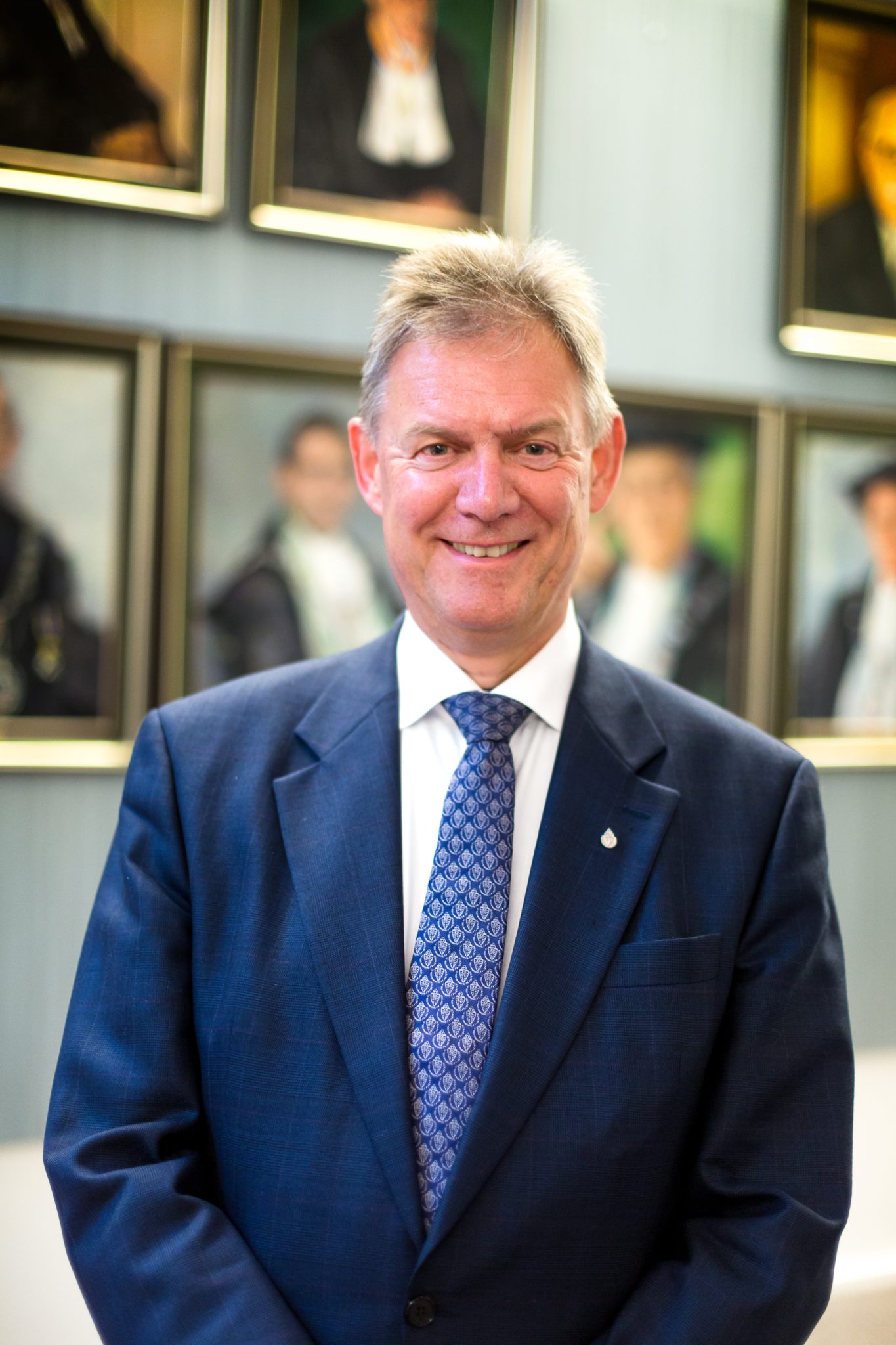‘Is Ghent’s assessment model really new?’
-
 Rector Han van Krieken says that in the Netherlands, just like in Ghent, the tide is turning: scientists no longer need to chase mile-long lists of publications. Photo Dick van Aalst
Rector Han van Krieken says that in the Netherlands, just like in Ghent, the tide is turning: scientists no longer need to chase mile-long lists of publications. Photo Dick van Aalst
Ghent’s new career model, which Vox wrote about on this site on Tuesday, aligns a movement that has taken off in the Netherlands, according to Rector Han van Krieken. ‘Radboud University also values the impact and quality of publications far more than the number.’
Every morning a new stack of Radboud University theses arrive on the desk of Rector Han van Krieken. ‘I always browse through them’, he says. ‘It is good to know what is going on at the university.’
One thing is abundantly clear to the him: the PhD thesis with the most pages is not necessarily the best one. ‘We have to let go of the idea that size is important. If someone delivers a massive thesis, I will go and talk to the PhD supervisor.’
‘If you have found success in a particular system, it is not so easy to change’
Van Krieken understands the reason researchers cling to the importance of the number of publications. ‘Many lecturers and others in high positions grew up with the idea that the number is important. But this idea gradually grew out of control.’
Collaboration
Van Krieken reacts to the career model implemented at Ghent University, about which Vox published an article earlier today. He says that until about eight years ago, he was convinced that academics needed to publish a lot. His thinking changed when he asked himself, as the Research Director of Radboud university medical center at the time, the following question: Why do we conduct this research? ‘As a cancer researcher, I want to make improvements in the diagnosis of patients. That is what counts, not the number of publications.’
Do lecturers at this university still want to publish lots of articles?
‘I still see this happen too often. We are working on a new Strategic Plan, in which increased emphasis is placed on collaboration between academics instead of competition.’
How will you make researchers aware of this change?
‘It is a recurring theme in the conversations with new lecturers. If you have grown up in a particular system and you have found success with it, change is not easy. But even young researchers suffer from this problem. Some PhD candidates want to publish as many articles as possible because they fear they will not get a job abroad.’
With the new career model, Ghent University is trying to switch from quantity to quality.
‘But is that a new thing? Radboud university medical center started this ten years ago. In addition, it is not the number of publications but the impact that is becoming increasingly important at the beta and arts faculties.’

So why is it not called the Nijmegen model?
‘Since the universities in Flanders are holding elections for their rector appointments, they will need to discuss their policies a lot more. Rik Van de Walle is very good at it and he deserves a commendation. I am also trying to get things in motion here and to implement changes. But I don’t necessarily need to engage the media to accomplish this. On the contrary: speaking up too much can create additional resistance.’
Your colleague in Ghent aims to create an ‘assessment break’ by only evaluating academics that perform well once every five years. How is this organised at Radboud University?
‘All academics in the Netherlands are assessed six times a year on the quality of their research using the SEP (Standard Evaluation Protocol as established by the Association of Universities in the Netherlands (VSNU), Royal Netherlands Academy of Arts and Sciences (KNAW), and the Netherlands Organisation for Scientific Research (NWO), a research funding provider. This protocol describes the methods for evaluating research at Dutch universities). The people with the most responsibility are held accountable. If the academic standard is below par, a line of research may be stopped. This of course impacts the entire research group.’
‘The Executive Board has already indicated to KNAW that the evaluations need to focus more on quality than on quantity. The Netherlands is a forerunner in this area, partly due to the Science in Transition movement of Frank Wiedema, Dean of the Medical Faculty in Utrecht.’
‘Chinese academics who come to the Netherlands want to return home with as many publications as possible.’
International committees who come to evaluate our programmes often have a different culture. Let me give an example. Last year, we hosted a visitation at our medical faculty. We always carefully prepare for these. A week before the committee was due to visit, we suddenly had to send a lot of additional publications. What happened? The international committee was not used to the idea that you only show your five most important publications.’
Do you expect that other countries will follow the example set by Flanders and the Netherlands?
‘Most publications originate in the United States and China. This change in culture has not caught on in those countries. Chinese academics who come to the Netherlands want to return home with as many publications as possible. Until recently I was the editor of a journal. Many submissions from China were cut-and-paste jobs and extensive plagiarism. It is still important for the Chinese to have many articles in the best journals. They face more competition.’
‘But there is another side to this story. Internationally, there is an enormous focus on university rankings. The number of article citations is still an important factor. But you will get more citations with a few good articles than with a lot of bad ones.’
The Rector of Ghent University expects that the international rankings of his university will not drop as a result of the new career policy.
‘I agree with him: they might even improve.’

